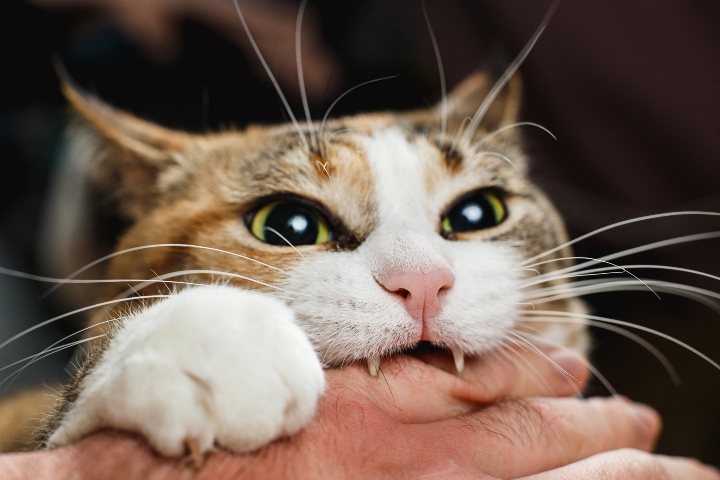Srinagar, Jun 01: A surge in cat bite incidents has been reported in the Kashmir Valley, with official data showing the number of such cases more than doubling within a year.
According to the Anti-Rabies Clinic at Srinagar’s Shri Maharaja Hari Singh (SMHS) Hospital, over 6,000 cat bite cases were reported between June 2024 and May 2025, compared to 2,874 cases recorded during the same period the previous year.
The monthly breakdown reveals a consistently high number of incidents: 440 cases each were recorded in June and July 2024, followed by 432 in August, 414 in September, 486 in October, and 339 in November. December saw 514 cases, while January 2025 marked a peak with 692 cases. February logged 658 cases, March 542, April 491, and May 537 — totalling 6,095 reported cat bite cases over the year.
Experts attribute this rise to a growing trend of pet ownership in the valley, particularly cats. “Just like dogs, cats can transmit rabies,” said medical professionals at the clinic. “We’ve observed a sharp increase in cases over the past three years. A key concern is the general neglect of basic hygiene and preventive healthcare practices among pet owners.”
Health experts warn that many pet owners fail to vaccinate their animals, administer deworming treatments, or seek timely medical care essential to prevent zoonotic diseases. Cats can carry and transmit infections like toxoplasmosis, a parasitic disease that, although rare, can cause serious health issues, including miscarriage in pregnant women.
Dr Syed Altaf Geelani, Superintendent of the Central Veterinary Centre in Srinagar, confirmed the uptick in pet cat ownership. “Nearly 80% of the animals brought to our clinic for treatment are cats. This shows how popular pet cats have become in recent years,” he said, emphasising the importance of timely vaccination, deworming, and hygiene.
Rabies remains a global public health threat, causing an estimated 59,000 human deaths annually, with about 95% of these cases occurring in Africa and Asia. The World Health Organization (WHO) considers rabies one of the most lethal viral diseases, yet entirely preventable through vaccination and awareness.
Medical experts urge the public to take cat bites seriously, seek immediate medical attention, and follow proper pet care protocols. “Vaccination protects pets from infectious diseases that may pose serious risks to humans,” they added, calling on pet owners to act responsibly to safeguard both animal and human health.








